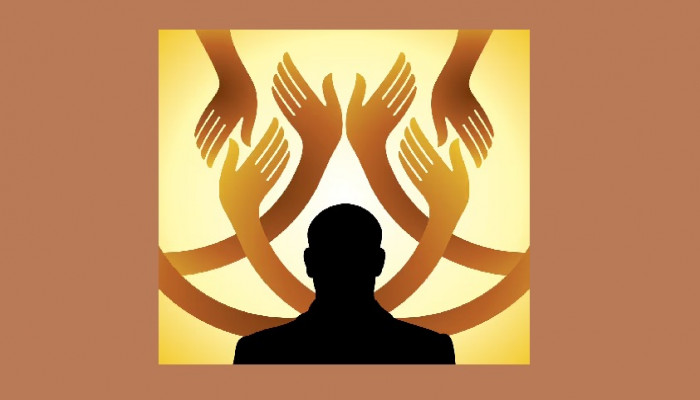Reimagining Bharat's Path to Being a Vishwaguru
- In Politics
- 07:40 PM, Aug 26, 2025
- Shail Derashri
Close your eyes. Picture Ancient India.
A vivid picture of leadership. A realm of legendary kings and queens. Not born to a gilded cage, but forged in the fires of knowledge and courage. Kings and queens were not just rulers by birthright; they were polymaths, masters of mind and spirit, adept in a multitude of disciplines essential for holistic governance.
They debated the deepest philosophies, demonstrating intellectual prowess and a deep understanding of dharma, their words sharp as a blade – Shastrartha (scriptural knowledge and debate). They wielded the sword with unmatched skill, leading armies from the front, a roar against the storm – Yudh-kaushal (warfare skills). They were architects of prosperity, their wisdom shaping empires – Arthashastra (statecraft and economics). But above all, they knew their sacred duty: to serve their people, truly, profoundly. The very idea of a king wasn't about power, but immense, unwavering personal capability.
Now, open your eyes. Look at Bharat today.
A vibrant democracy. The people choose their leaders. While these leaders ostensibly represent the will of the populace, where is the rigorous training? Where is the deep understanding of statecraft, economics, or even basic public service? There’s no ancient gurukul, no battlefield to hone their courage.
This isn't just a difference; it's a deep and wide gap. How can we dream of becoming Vishwaguru – a global teacher – when those at our helm often stand far from the demanding standards of our past?
Remember the cinematic grandeur Baahubali: The Beginning? Prince Amarendra, a king in the making, charged into battle, leading his loyal forces of Mahishmati. But the aggressor, Kaalkeya, lurked far behind, safe. That silver screen image isn't just fiction; it echoes a profound historical truth: A true leader faces the storm, not hides behind bulletproof glass.
If ancient monarchs prepared meticulously for the weight of their crowns, shouldn't our democratic leaders, holding the fate of billions, be held to an even higher standard? This isn't about degrees. It's about a holistic understanding of governance, policy, and an unbreakable commitment to public service.
It's time for Bharat to forge a new path with a new Blueprint for Leadership:
1. The Crucible of Knowledge: Mandatory Training
Just as ancient rulers underwent rigorous schooling in statecraft, economics, and law, modern elected officials should be mandated to complete comprehensive training. This isn't about ideological indoctrination, but about equipping them with practical skills and knowledge for effective governance.
Imagine a future where every person looking to get elected, from a young politician like Pushpendra Saroj, or Tejasvi Surya, to a seasoned veteran like Amit Shah, or Mallikarjun Kharge, undergoes a few years of intense and compulsory courses in politics, like engineers, lawyers, businessmen, artists or doctors- all study for their respective professions. A course that makes integrity not just a word, but a practiced reality drawn from global benchmarks, reinforcing and strengthening ethics with real-world skills like Mastering policy making by dissecting budgets and understanding policy impacts on every Indian, thereby not just relying on advisors, and Engineering better governance through deep knowledge of urban planning and public health, thereby truly transforming cities, not just managing them.
2. The Power of Diverse Minds: Beyond Career Politics
Ancient courts flourished with the wisdom of diverse minds. Our modern halls of power must too. Modern democracy, while theoretically open to all, often sees the rise of "career politicians" who may lack deep expertise in specific domains. Let the experts lead, not just advise. For example, with economists at the helm, they can directly shape India's economic destiny, bringing data-driven solutions to the Parliament, or with scientists guiding our future, they can shape the national tech policy to ensure India remains at the cutting edge rather than relying solely on bureaucratic advice. Visionaries, with their direct experience, can transform fields like education, healthcare, urban planning, agriculture, or legal justice.
3. The Unseen Crown: A True Service Ethos
The ancient ideal of Rajadharma must once again burn bright. The Shanti Parva of the Mahabharata contains elaborate teachings on Rajadharma by Bhishma to Yudhishthira, making it clear that the king should be a servant of the people and all his actions should be for the benefit of the populace, not for personal gain.
In modern India, while "public service" is a common political slogan, its practical application can be diluted. Today, politicians should consider themselves "public servants," adhere to high standards of ethical conduct, transparency, and accountability, and prioritise the overall welfare of the nation and its citizens in their decisions, rising above personal interests.
Service isn't a slogan; it's a sacred trust.
4. Face the People: Reclaiming Accessibility and Trust
The physical distance between leaders and the public has grown. The "bulletproof glass" separating our leaders from the public is a metaphor that extends beyond literal protection to an increasing inaccessibility and opaqueness in political communication. While physical battlefield leadership is no longer relevant, modern leaders can still "lead from the front" by being accessible, transparent, and directly engaged with the challenges faced by their constituents, rather than operating from a detached vantage point. Rebuilding trust requires leaders to be more visible, accountable, and willing to engage directly with critical inquiry. Real leadership happens at the front, not from afar. A four-pronged approach to re-establishing public trust is:
- The Unscripted Truth: For decades, the public has yearned for transparency. While Dr. Manmohan Singh was often criticised for his silence, the current Prime Minister, Narendra Modi, has famously not held a single unscripted press conference in India since assuming office in 2014. This over two-decade trend of closed-door politics, relying on controlled interviews and monologues like 'Mann Ki Baat', has eroded public trust. It must end. Leaders must regularly face the media, answer tough questions, and speak directly to the nation, just as leaders do in vibrant democracies worldwide.
- Direct Conversations, Real Solutions: While public rallies are common, direct and two-way conversations with constituents in town hall formats, where leaders answer questions without filters, are rare. A leader can only know the pulse of the country when they have unscripted Q&A sessions with citizens, truly engaging with citizens, not just delivering speeches. This direct dialogue, once common in early Indian democracy, must be revived.
- Information, Unfiltered: The government information should be readily available, easily understandable, and proactively disseminated, rather than being selectively released or obscured. The Right to Information (RTI) Act, 2005, brought by the UPA government, was a powerful beacon of transparency. It allowed citizens to demand answers and hold the government accountable. But the NDA government's 2019 amendments weakened its core, undermining the independence of the Information Commissions. Now, accessing crucial data, like detailed election results or certain details of government servants, faces increasing hurdles. This is a betrayal of transparency. Instead of shrinking the light, we must broaden it, proactively releasing more data, like the Election Commission of India publishing comprehensive voter turnout and EVM data, making every layer of government truly accountable.
- Embrace the Challenge: A true leader welcomes criticism. This means not dismissing dissenting voices as "anti-national" but engaging with them in a mature and democratic manner. Politicians should willingly engage in debates and intellectual discussions without dismissing dissent. This intellectual courage is vital for a growing democracy.
India's destiny as Vishwaguru pivots on this transformation. It’s a blend of ancient wisdom and modern democratic courage. The path to becoming a Vishwaguru is multifaceted. It demands economic strength, cultural influence, and intellectual prowess. But at its heart, it requires exceptional leadership.
Can we cultivate leaders worthy of this grand aspiration?







Comments